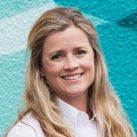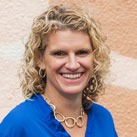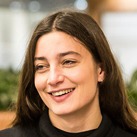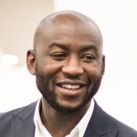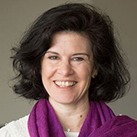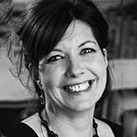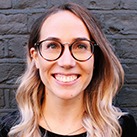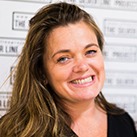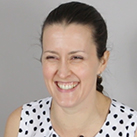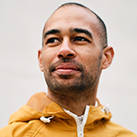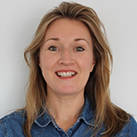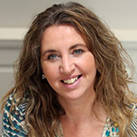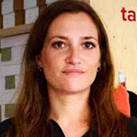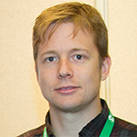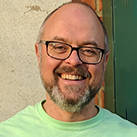Overview
The Cambridge Social Innovation Prize was awarded for the first time in 2019.
The prize celebrates and supports extraordinary social innovators creating social impact through business across the UK.
Below we share previous winners of the prize who were chosen for their achievement to date and for their ambitious plans for the future.

2024 winners
InPower Academy CIC is a social venture that harness the power of martial arts to create positive social change. They offer structured programs where young people engage in physical training, learn self-defense, and develop essential life skills. Their initiatives are designed to improve mental and physical well-being, build a sense of community, and equip participants with tools for personal and academic success.
Daryl shares what the prize means to him:
I applied for the Cambridge Social Innovation Prize to build on a key foundational aspect of our organisation and that is eastern philosophy and traditional martial arts. This opportunity alongside support and resources that come with it takes my personal knowledge and impact of my organisation to another level. Winning the Cambridge Social Innovation Prize is a tremendous honour. This prize not only motivates us to continue our mission but also provides essential support for our growth. We are excited about the opportunities this recognition brings and are eager to further our impact on the community and deeper our understanding of martial arts tradition and values.
Hear more from Daryl in this episode of the Social Innovation: The Social Ideas Podcast.
The Women’s Work Lab is a social enterprise that helps unemployed Mums transform their lives by rebuilding confidence and helping them on their journey to find work that works for them and their families.
They facilitate Mums to become the best versions of themselves, whatever that looks like. Ambition is unique to an individual and we always aim to help someone identify it and then take the necessary steps to achieve it.
Camilla and Rachel on winning the prize:
As Co-Founders we’ve been heads down since 2018 setting up and building the Women’s Work Lab into what it is now. We’re hugely proud of the progress we’ve made but would like to create greater impact across the UK for more Mums and we feel that this prize could be the catalyst for our next phase of growth. Absolutely chuffed to bits! A huge shock and honour to be recognised as it’s always really daunting to apply for something as prestigious as this. We always want to highlight how special our Mums are and knowing that their voices and stories will be told at the University of Cambridge is super exciting.
Hear more from Camilla and Rachel in this episode of the Social Innovation: The Social Ideas Podcast.
Foundervine’s mission is to democratise innovation by removing social and economic barriers that prevent access to entrepreneurship. Today, it stands as one of the largest and most active accelerator ecosystems in the UK, serving as a bridge between institutions and diverse founders, shaping tomorrow’s economy.
Its impact is substantial: they have supported over 1,200 businesses to grow. Their ventures have raised tens of millions in capital and created over 600 jobs. Over 63% of their programme participants are women, and over 85% are racially-minoritised individuals.
Collaborating with global partners such as Barclays Bank, Lloyds Bank, Sainsbury’s, Amazon, and the UK Government, their programs testify to their efficacy in delivering impact. Beyond funding, they accelerate startups, foster business growth, and help emerging companies reach their potential.
Izzy says of winning the prize:
I am incredibly honoured and thrilled to have won the Cambridge Social Innovation Prize. This recognition allows us to support more entrepreneurs and deepen our impact. I would like to express my deepest thanks to Trinity Hall and the Cambridge Centre for Social Innovation and I’m very much looking forward to leveraging the expertise at Cambridge to realise our ambitions.
Hear more from Izzy in this episode of the Social Innovation: The Social Ideas Podcast.
Sirlute is a creative charity from East London, founded in 2019. Sirlute provides free creative learning in music, multimedia and fashion for marginalised and under-resourced young people aged 5 to 25. deemed at-risk.
Their beneficiaries are from the majority, Black and ethnic minority backgrounds. According to JR:
Our vision is for a more equal society where all youth can thrive regardless of their backgrounds, and we’re on a mission to ensure that young Londoners can access the quality creative opportunities they need to reach their potential.
JR shares his thoughts on the impact of the prize:
This recognition boosts my confidence and motivates me to continue striving for excellence. More importantly, it serves as a testament to the support and encouragement I've received from my mentors, colleagues, peers and loved ones. This win is a shared victory, and it strengthens my resolve to keep innovating and contributing to my field. I am deeply grateful and excited for the new opportunities and responsibilities that come with this honour.
Hear more from JR in this episode of the Social Innovation: The Social Ideas Podcast.
2023 winners
Aoise Keogan-Nooshabadi is a Co-founder and the COO of Supply Change, a social enterprise platform, which allows buyers to find social environmental suppliers based on location, trade, and social impact, enabling the procurement of everything from food and drink to marketing, cleaning, road signage, flooring, energy and more. Aoise has consulted for global organisations and has been recognised as one of the Women in Social Enterprise 100.
She leads the Supply Change supplier community and runs events and operations.
Aoise shares what the prize means to her:
It's a huge honour to be awarded the Cambridge Social Innovation Prize. We've been part of the Cambridge Social Ventures network and have been lucky enough to engage with the learning and the network that came as part of that. It's been really crucial for us, so continuing the partnership and support will be beneficial to the growth of Supply Change. It comes at a pivotal point, as we improve our platform to scale and meet the demand for social procurement across the public and private sectors.
Poku Osei is the founder and CEO of Babbasa, a social enterprise created to tackle the challenges of youth unemployment and educational underachievement in Bristol’s ethnically diverse inner city communities.
Underpinned by the desire to ensure young people’s aspirations and opportunities should not be determined by their background, Poku and his team work with young people to explore and nurture their unique skills and talents to develop their leadership abilities and career opportunities.
Winner, Poku Osei shares what the prize means to him:
I feel honoured to be receiving the prestigious Social Innovation Prize from Cambridge University, on the 10th anniversary of Babbasa. Taking into consideration where I'm from, this award reinforces for me that we can all descend the limits of our predefined story and pave the way for the future we desire.
Zakia Moulaoui is the Founder and CEO of Invisible Cities, a social enterprise that trains those who’ve experienced homelessness to be tour guides in the cities they live in. The tours are designed to break down the stigma surrounding homelessness, giving the tourist the opportunity to learn and be entertained through narrative of personal experience.
Invisible Cities began in Edinburgh and can now be found in York, Manchester, Cardiff, and Glasgow.
Winner, Zakia Moulaoui shares what the prize means to her:
Winning the prize is such a great recognition of all the work that has gone into building Invisible Cities for the last 7 years. It is also the perfect opportunity for me to reflect on what is next not only for the social enterprise but for myself personally. I think I will only believe it once I am in Cambridge, and I can't wait for this next chapter in my life!
Dr Liz Dennis is the co-Founder of The Filo Project, which offers high quality day care for small groups of older people, supporting individuals who are socially isolated, many of whom are experiencing symptoms associated with moderate dementia.
The framework allows clients to grow in confidence and make friends, reducing the physical and mental health issues associated with isolation. Positively, the co-founders have found that their clients’ experiences have stabilised or even improved symptoms of dementia. Of equal impact is the much needed regular and extended respite that carers get to enjoy.
The Filo Project is based in Devon, East Lancashire, Somerset, Torbay and most recently, Cornwall.
Winner, Dr Liz Dennis shares what the prize means to her:
We applied for this award as we anticipated that a win would help move us into a different phase of development and equip us with skills to cope with ongoing growth. We’re delighted to have won this prize and are looking forward to an exciting year ahead working with the Cambridge Social Ventures team to progress our professional development, gain valuable insights and forge further ahead with our work.
Tim West is the Founder Editor and CEO of the social enterprise magazine, Pioneers Post. Tim is also involved in a number of different organisations, working to promote social entrepreneurship, and connecting social entrepreneurs with social impact investment companies.
The purpose of Pioneers Post is to be “an independent media platform committed to ‘solutions-led’ journalism”. Through its delivery of multimedia news, features, and expert articles, the journalism team focuses on the work the social enterprise and impact investment industry.
Winner, Tim West shares what the prize means to him:
Entrepreneurship – even social entrepreneurship – can be quite a lonely place, and although I’ve spent more than 20 years at the heart of the social impact space, it’s actually quite easy to feel disassociated (particularly as a journalist) and somehow an observer rather than “a real social entrepreneur”. So, winning this prize is personally very affirming. This is also a really serious prize – I look at some of the previous winners and there are some names there that I very much respect and admire. So, to be recognised among these people actually feels very special and a real honour – thank you.
2022 winners
Anne Bailey is the CEO and co-founder of Form the Future CIC, a careers and employment company with a mission to connect young people to a world of career possibilities, inspire them to dream big, and empower them to achieve their full potential.
As a parent of children in local state schools, Anne saw a disconnect between the dynamic Cambridge economy and what was happening in education. The Cambridge Phenomenon hadn’t permeated schools, and she worried not only about her children’s prospects but those of their peers.
Since 2015, Form the Future have partnered with hundreds of companies and worked with over 100 schools, local authorities, and other partners. By connecting schools with local employers, students learn about and prepare for their future careers while employers get support to recruit and build their workforce. In addition, the employees who volunteer as mentors, role models or work experience hosts, develop new skills and a sense of wellbeing from giving back to their community.
“The need for what we do is vast, and it’s not just here in the East of England where we’re based, it’s everywhere. This award with its focus on my professional development will give me the skills and support that I need to take Form the Future to the next level. I am absolutely delighted to have been chosen as one of this year’s winners.
“Many young people leave school without adequate careers education, unsure of what they want to do and how to enter the world of work. Our goal is to open students’ eyes to a wide range of career possibilities and challenge them to think broadly and divergently about their future career options.
“We build their social capital and challenge preconceptions about who can do what job, dismantling barriers to social mobility. And we do this by working in partnership with employers in growth sectors helping them to build a talent pipeline.”
Anne recognised that education as a pathway to social mobility is an unfulfilled promise for many young people. Her efforts address systemic barriers to unlock otherwise untapped potential and inspire youth to explore careers pathways they had not even imagined.
Tamara Macfarlane is a children’s author and the founder and co-owner of Moon Lane, a specialist children’s bookseller established in 2003 to raise equality of access and representation in children’s books and in the publishing industry.
Tamara and her team at Moon Lane believe that the lack of diversity in the UK publishing industry leads to a singular dominant voice in our cultural conversation, limiting empathy, understanding, integration and social mobility. They work to address this by bridging the gap between the UK’s brilliantly diverse population and UK publishing, to ensure that every child sees themselves represented in their children’s book ranges.
Moon Lane initiatives include highlighting and celebrating the work of authors and illustrators from under-represented groups, ensuring a route to market for more diverse titles, working closely with schools in our communities to drive the vital conversation about inclusion in children’s books, and creating opportunities for young people from a more diverse range of backgrounds, to access careers in bookselling and publishing.
Moon Lane includes four physical bookshops, a school supply and book consultancy, the delivery of annual literary festivals and a wide range of other initiatives promoting a life-long love of reading.
“I applied for the prize because The Cambridge Social Innovation Award offers a unique opportunity to learn from mentors who are leaders in the social ventures field, while becoming part of a wider network highlighting the many ways in which business can be used for positive and impactful social change. I am delighted and hugely honoured to be chosen as one of the four winners of this award. It could not have happened at a better time both for my own personal leadership development and for Moon Lane.”
Tamara makes a difference by addressing the lack of representation in children’s books. In doing so, she paves a way for change in the bookselling and publication industries, enabling diverse authorship and broadening the offerings available to young readers and their families.
Katie founded Altruist Enterprises in 2013 following her own personal experience of mental ill-health. Since then, she has grown Altruist into a nationwide provider of workplace stress management and resilience training. As a purpose-led organisation, they reinvest a proportion of profits and resources to provide subsidised/free mental health workshops to young people and parents.
Katie and her expert team at Altruist Enterprises have over 200 years of combined experience working in mental health and assisting organisations with bespoke well-being programmes. Since forming, they have trained over 10,000 individuals in resilience and mental health skills nationally, providing managers, colleagues, teachers and pupils with the skills to support themselves and each other, through the many challenges of work and home.
Katie is passionate about working in partnership with organisations to aid the development of emotionally intelligent managers, enabling them to support themselves and their teams more effectively. Katie is also committed to ensuring that young people have the resiliency skills to deal with the pressures of modern-day life.
“I applied for the prize as I’m keen to develop my capability as a social leader. In particular, I wish to learn more about leadership and management, company strategy and building high performing teams. I’m delighted to have won the Cambridge Social Innovation Prize 2022 and am so grateful for the opportunity. I look forward to expanding my network and connecting with the other prize winners.
“Altruist was formed with the vision of achieving parity of esteem between physical and mental health in the workplace. Our aim is to increase knowledge, encourage conversations and build confidence around the issue; thus ensuring healthy, motivated and more productive workforces.”
Katie harnessed her passion and lived experiences to drive a paradigm shift through Altruist Enterprises. Her work is changing how mental health is viewed and is helping thousands in the process.
Luminary Bakery is a social enterprise providing training, employment and a community of support to some of the most disadvantaged women in London. Alice Williams and her team support women who have experienced gender-based violence and multiple disadvantages. By offering trauma-informed vocational training, holistic support and paid job opportunities, Luminary empowers women to fulfil their potential, build their careers and leave disadvantage behind. They currently have two café locations and an online store selling celebration cakes and letterbox treats.
With clients including Ben & Jerry’s, ASOS, Microsoft, and Disney, Luminary won the Queen’s Award for Enterprise in 2020. Since starting in 2014, Luminary have provided opportunities for 155 women and seen them go on to achieve remarkable things.
“This prize is a unique opportunity to invest in my development as I lead Luminary forwards. There are various courses I had identified to upskill me in my leadership and this grant will finally make them accessible – I’m really excited to get learning! There are women all over the UK who need services like Luminary, I plan on using this prize to set Luminary up for successful growth and to empower even more women to thrive.
“We use baking as a tool to take women on a journey to employability and entrepreneurship, equipping them with transferable skills for the working world. By investing in and releasing them to realise their dreams – through training, employment, and community – we aim to break cycles of poverty, violence and disadvantage once and for all.”
Alice and her team at Luminary Bakery are changing lives and addressing serious, intersectional issues for the women they serve. They reimagine baking as an innovative means to an end, creating significant social impact through their activities.
2021 winners
Founded in 2016, Commons Legal is a specialist criminal defence law firm, based in London. At the heart of the firm’s mission is social justice and the team of lawyers ensure representation is provided at police stations, in courts and at appeals.
Sashy Nathan and his co-founders set up Commons Legal as a Community Interest Company, ensuring all profits generated by the lawyers are ploughed back into the firm, giving their clients the opportunity to receive legal advice and representation no matter how their case is funded.
Working with local support groups to ensure their clients’ needs are supported, Sashy and the team also deliver training to local support groups in order to help those who are considered at risk of being criminalised.
Founded in 2016, Commons Legal is a specialist criminal defence law firm, based in London. At the heart of the firm’s mission is social justice and the team of lawyers ensure representation is provided at police stations, in courts and at appeals.
Sashy Nathan and his co-founders set up Commons Legal as a Co-operative and a Community Interest Company, ensuring all profits generated by the lawyers are ploughed back into the firm, giving their clients the opportunity to receive legal advice and representation no matter how their case is funded.
“Commons Legal is very different to other law firms. As a not-for-profit company, we reinvest any profit made into our social justice projects. We’re part of a new ecosystem of ethos driven law firms, that focus on why people want to become lawyers and how they deliver legal services and legal practice.”
Last year, the law firm developed and published a free app which provided advice and guidance for those who had been issued fines for breaching COVID-19 regulations during the lockdowns.
Commons Legal also researched the impact of a 2017 policy which required defendants to declare their nationality in open court. It was found that doing so at the start of court proceeding meant any chance of impartiality was undermined – a real win for social justice.
Of Sashy’s work and his win, Cambridge Social Ventures Programme Director, Nicole Helwig says:
“The winners of the Cambridge Social Innovation Prize are visionaries and drivers of social change. They identify entrepreneurial opportunities through insights based on empathy, experience and a deep understanding of the social challenges they address.
“Sashy Nathan and his co-founders at Commons Legal are driving structural innovations within the legal system, motivated by a clear commitment to social justice. This prize celebrates social entrepreneurs like Sashy who challenge systemic barriers and break new ground with their innovations”.
Winning was a surprise and having an objective party like the University of Cambridge recognising what we do and providing us with a platform to develop and to continue to grow in whatever way that means, makes the long hours and the challenges of running a business like this worthwhile.
Social Ark’s mission is to empower 16-30 year olds living in East London communities by supporting and guiding them as they use their lived experiences to develop their social enterprises.
Founder and CEO, Lisa Stepanovic and her team, deliver a programme of workshops, mentoring and one-to-one support tailored specifically to harness the skills and talents of young people who are feeling increasingly disenfranchised in an area that is being gentrified.
Lisa has ensured that, through the Social Ark family, social impact and sustainability are at the heart of her work. Those who have made their way through the programmes are trustees on the board, with alumni also part of the senior management team.
Born and raised a working-class East Londoner, Lisa is driven to address the inequalities on her doorstep. Social Ark’s mission is to empower 16 to 30 year-olds living in East London communities by supporting and guiding them as they use their lived experiences to develop their social enterprises. This is an entrepreneurial programme truly rooted in ‘place’ and locally led, creating a springboard of positive action that has resulted in sustainable change.
Founder and CEO, Lisa Stepanovic, and her team, deliver a programme of workshops, mentoring and one-to-one support tailored specifically to harness the skills and talents of young people who are feeling increasingly disenfranchised in East End communities that are that being gentrified.
“We support young people from working class backgrounds, to use their lived experiences to lead the change they want to see, and we use the social enterprise business model to do that. We run structured learning programmes and provide expert mentoring, with continued wraparound support with business issues and personal issues.”
Lisa has ensured that, through the Social Ark family, social impact and sustainability are at the heart of her work. Those who have made their way through the programmes are trustees on the board, with alumni also part of the senior management team.
Of Lisa’s work and her win, Cambridge Social Ventures Programme Director, Nicole Helwig says:
“The winners of the Cambridge Social Innovation Prize are visionaries and drivers of social change. They identify entrepreneurial opportunities through insights based on empathy, experience and a deep understanding of the social challenges they address.
“Lisa Stepanovic of Social Ark honed in on gaps in services for working class youth, becoming their champion and empowering them to empower others. This prize celebrates social entrepreneurs like Lisa who challenge systemic barriers and break new ground with their innovations”.
Listen to Lisa’s full interview ‘The social ark of East London’ on the Social Ideas Podcast
For me, it's not the money, it's about the recognition of the programmes we deliver and the work we've done. It shows our young people it doesn't matter where you're from, do something different, stick to it and stay true to your values. It's validation of our young people and our community.
Founder Kim Griffin is an occupational therapist with almost twenty years of experience. She developed GriffinOT with the mission to give parents of children with additional needs the opportunity to learn how to support their children. Kim is also working with educators to ensure they are able to provide support within a classroom setting.
It is important to Kim that the services she provides are affordable; therefore, she has indexed the pricing model to the UK’s National Minimum Wage, which has been written into the social enterprise’s Articles of Association.
Using her experience and knowledge, Kim has created the online resources, which include articles, a mix of free and paid for training, books and fine motor skill programmes.
With almost twenty years of experience as an occupational therapist, Kim developed GriffinOT with the mission to give parents and educators of children with additional needs or sensory differences the opportunity to learn how to support their children themselves. Her online resources are written in friendly and accessible language supported by images and videos, so that parents and teachers with no prior knowledge of Occupational Therapy can lead children through the task. For example: teaching scissor skills using BBQ tongs, or using the ‘crocodile snap’ song and video to help children develop their pencil grasp.
“I am committed to teaching all educators and parents how sensory and coordination needs impact a child’s success and how they can help. GriffinOT aims to ensure that this piece of the puzzle is not missed and that underlying needs are not just written off as bad behaviour or laziness.”
Kim’s online resources have reached more than 250,000 people, including daily exercises to help parents support their children’s development at home through lockdown. Her training focuses on simple tools that can be used by anyone supporting children to improve their sensory processing and motor skills. Cuts to local services, the cost of private occupational therapists, and the impact of COVID-19 means that Kim’s mission to provide affordable services is more important than ever; therefore, she has indexed the pricing model to the UK’s National Minimum Wage, and this commitment has been embedded in the company’s incorporating documents.
Of Kim’s work and her win, Cambridge Social Ventures Programme Director, Nicole Helwig says:
“The winners of the Cambridge Social Innovation Prize are visionaries and drivers of social change. They identify entrepreneurial opportunities through insights based on empathy, experience and a deep understanding of the social challenges they address.
“Kim Griffin through her work at GriffinOT is changing the way vital occupational therapy services are delivered, making them accessible by redefining affordability. This prize celebrates social entrepreneurs like Kim who challenge the norms and break new ground with their innovations”.
If you said in 2018, when I attended the Social Venture Weekend at Cambridge Judge Business School, I would be a Social Innovation Prize winner in 2021, I would not have believed you! The prize makes me more confident about the importance and scale of the impact I am making.
2020 winners
Cracked It is London’s award-winning social enterprise smartphone repair service. Staffed by young ex-offenders and youth at risk, its mission is to harness the smartphone repair market to support vulnerable youth away from crime and towards employment.
Cracked It takes mobile phone repair to offices across London, with pop-up repair clinics in large corporate workplaces such as UBS, the Ministry of Justice and the US Embassy, staffed by young people trained in both repair skills and workplace behaviour. A benefit of this model is that young people are exposed to professional workplaces, and corporate teams have the chance to get to know young people who they may not have considered employable.
Josh and the team have made a proven impact: 64% of trainees on their transitional employment programme gain employment within a year, and 70% don’t re-offend in the same period.
Elemental Software’s online social prescribing platform helps the health, housing, local authority, prison, higher education, charity and voluntary sectors work together to connect people, build communities and improve lives. The leading platform of its kind in Ireland and the UK, co-founders Jennifer Neff and Leeann Monk-Ozgul hope to take their evidence-backed intervention abroad.
Social prescribing allows healthcare professionals to refer patients to local, non-clinical services which meet their wellbeing needs. These lifestyle interventions could include community gardening groups, creative writing or debt advice: the range of activities that patients can take part in depends on what’s available to them locally, which in turn is dependent on how local services work together.
Elemental Software tech-enabled service helps local organisations work together to offer joined up solutions that match patients’ wellbeing needs to their interests, and to track the impact of these interventions against public health data.
GoodGym is a digital platform for people who want to run and to use their running time to ‘do good’ in their community. Whether running to an isolated person’s home for a ‘social’ or to do an errand, or to a community project to do a bit of manual labour, GoodGym members are using their energy to benefit their community.
GoodGym’s work is unique in the world, and has been shown to have significant impact on two of the most pressing issues of our time: care of our ageing population and physical inactivity. Larger than any other running club in the UK, GoodGym is funded by runner subscriptions, brand partnerships and local authority contracts.
A co-operative bakery located opposite Liverpool FC’s iconic Anfield stadium, Homebaked is famous across Merseyside and beyond for its award-winning pies. Having taken over the local neighbourhood bakery to save it from demolition, the co-operative has grown to become a thriving business and community space with over 30 active volunteers and 20 members of staff, all with strong links to the Anfield and Everton areas of Liverpool.
Inspired by the belief that ‘we all deserve to live well’, Homebaked Bakery is more than just a local bakery. Creating good jobs, great food and welcoming spaces in one of the many left-behind areas of the UK, it is a model for community-led regeneration enterprise from which other left-behind cities could learn.
2019 winners
Homes for Good is Scotland’s first social enterprise letting agency. They also own two property investment portfolios of 240 homes specifically for people who have limited housing choice. Since 2013, Home for Good has grown to 21 employees, £12.5 million in assets and turnover of approximately £1.6 million.
But the way Susan talks about the business, the driving motivation is to give people dignity in housing: for tenants to love your home and for your home to love you. People who live on benefits or so-called ‘high-risk’ tenants often don’t get that opportunity.
To scale her impact, Susan wants to lead by example – her goals in the next year include meeting with estate agents and social organisations across the UK to help them adopt a similar model.
Birdsong provides living-wage work to women from migrant communities in London using craft skills that they already have. With ‘dress in protest’ as their catchphrase, their collection is fashion-forward and sustainably-made.
There is a wealth of making skill among London’s migrant communities but the women Birdsong employ often face significant barriers to employment: for example language, lack of qualifications and childcare commitments. One of the women they work with said: “working with them has always made me feel at home, comfortable, accepted, safe and understood”.
Aside from the social mission, Sarah and the team have managed to build a manufacturing process that is local and lean, which gives them margins comparable to industry standards. They have also provided 10,000 hours of paid work at the living wage to low-income women in East London.
Will’s vision combines education technology with one to one support to improve outcomes for vulnerable people in social care settings.
The AutonoMe app helps people learn new skills through step-by-step videos and helps them self-evaluate their needs. This helps carers understand where each individual is on their journey of independence, so they can make evidence-based decisions about their ongoing support needs. It’s already operating in seven local authorities in South West England, and Will’s ambition to make this a mainstream part of social care nationally.
It’s a win-win innovation: firstly, for vulnerable people who crave independence from people standing over their shoulders; secondly, for local authorities commissioning a better service at lower costs; and thirdly, for shareholders as it does this whilst still delivering profit.
Regather is hard to pin down – but that’s all in the design. Gareth founded this co-operative to allow space for community to flourish and “to help people work together, support each other and make projects happen”.
Over the past 10 years, that’s settled into three main areas:
- Food – including a vegetable box scheme and market garden.
- Drink – a bar and a microbrewery producing craft beer and cider.
- Events – a two-day music festival and event management services.
Gareth is a champion of social and economic change through food. His five-year plan is to deepen the engagement between the community and its food systems by launching a community share offer and membership scheme, inviting the community to engage fully in the democratic governance and ownership of the Regather Co-operative.



